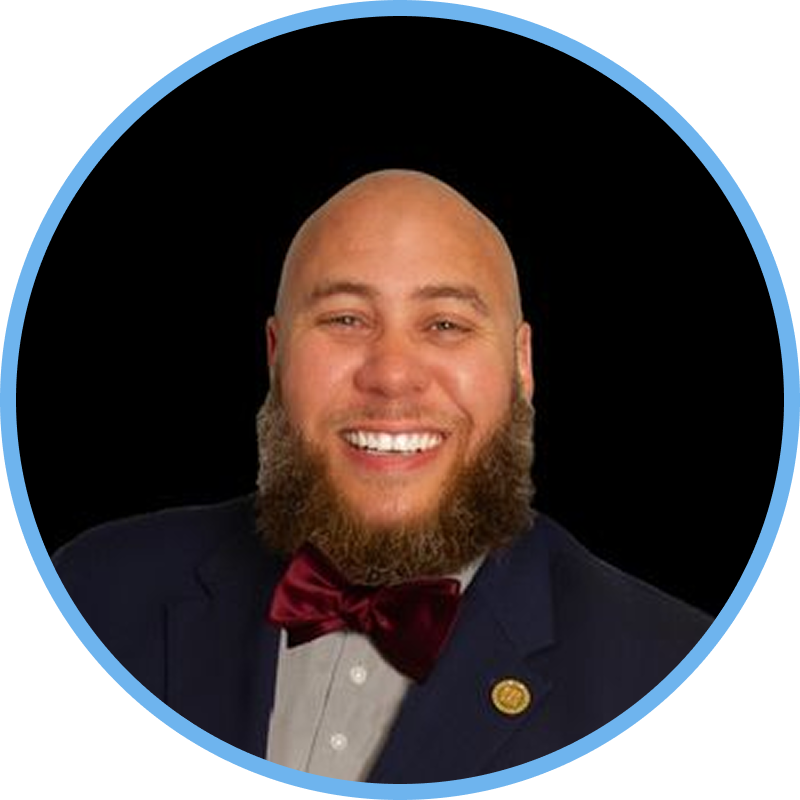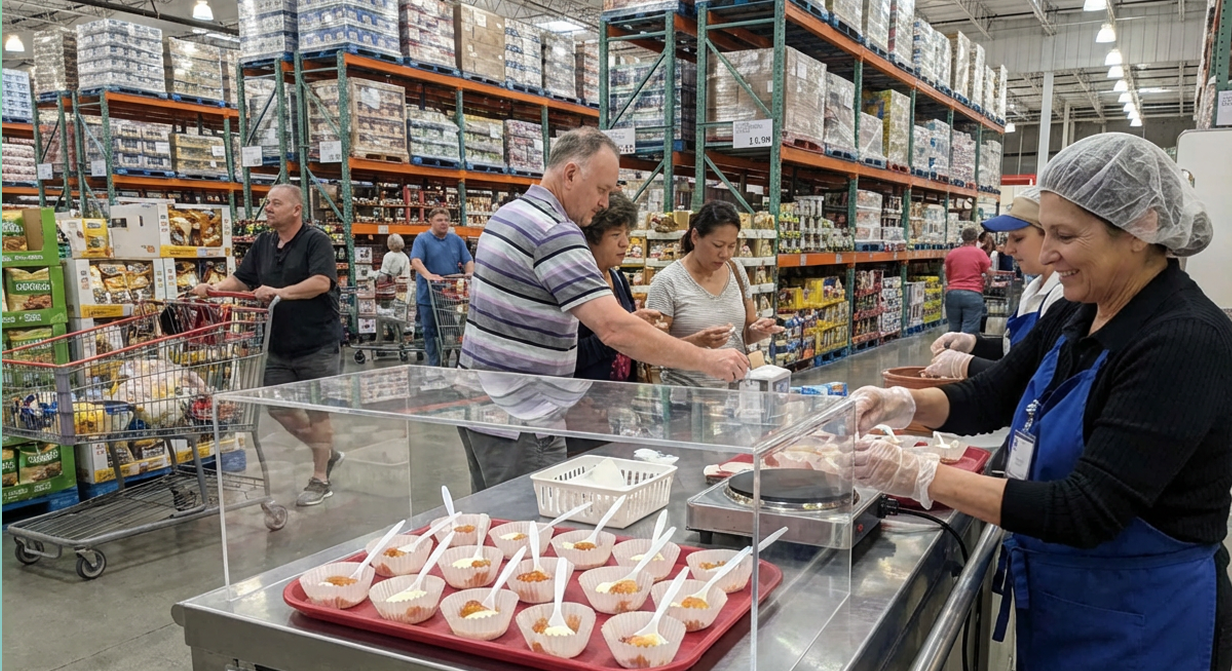Eight months after I walked out of a Wisconsin State prison, I found myself standing on a Milwaukee highway construction site — hard hat on, steel-toed boots laced tight, a shovel in my hands, and a mix of fear and hope in my chest. This wasn’t the future I pictured growing up.
My parents worked hard to give us stability — my dad at a car wash, my mom as a caretaker in a nursing home. Construction wasn’t part of the plan. But maybe the seed was planted long ago, building Lego cities with friends and rebuilding them from imagination. I didn’t realize it then, but those moments taught me something about creating, rebuilding, and starting fresh.
So there I was, standing on the Marquette Interchange with cars rushing by and semis blowing their horns, telling myself, “This isn’t the future I pictured in prison—but if I can make it here, I’ll never go back.” Those early days sweating under the sun weren’t just about earning a paycheck. They were about rebuilding a life.
Discovering Apprenticeship for the First Time
Apprenticeship wasn’t just a job — it was a lifeline that transformed my reentry journey and opened the door to a real career. And here’s the truth: I had no idea what an apprenticeship even was. My entry into it was completely unintentional.
During my nearly 10 years in prison, countless conversations revolved around “chasing the American Dream” once we were released - how to stay out, rebuild, and start over. But not once did I hear the word apprenticeship. No one - not my fellow inmates. not the education staff - ever talked about it as a real pathway forward: paid training, mentorship, benefits, and a direct line to a skilled trade and long-term stability.
A few weeks after my release, I found myself working at Doral Corporation, loading semi-trailers with construction equipment. That’s where I met Richard Roundtree, the Project Development Manager and an ironworker in Milwaukee, who was the first person who ever mentioned apprenticeship to me.
I remember telling him, “All I’m trying to do is not go back to prison.” I didn’t know anything about the construction industry, and I certainly didn’t think I was qualified for a career in it after incarceration. But I would soon learn that becoming an apprentice would be one of the most powerful decisions I could make for myself.
Sadly, that lack of awareness is still part of the problem. Across the country, thousands of justice-impacted individuals, especially those returning home from incarceration, have no idea that apprenticeship even exists. They don’t know it can lead to high-wage careers, industry-recognized credentials, benefits, and a real piece of the American Dream. And because they don’t know, they never step through the door. I almost didn’t either.
"
Across the country, thousands of justice-impacted individuals, especially those returning home from incarceration, have no idea that apprenticeship even exists....and because they don't know, they never step through the door.
The Opportunity I Never Knew Existed
The truth is, I didn’t enter apprenticeship because it was trendy or because I had a five-year plan. I entered because someone told me, “Walsh Construction is hiring construction craft laborers, and it probably pays more than what you’re making.” My mindset was simple: “The worst they can say is no.”
As I filled out the application, I reached the question: “Have you ever been convicted of a felony?” ”That’s when three men walked out of a back room. One of them, flipping through a stack of paperwork, casually said, “I would never hire someone who has been to jail.”
My heart sank. I hadn’t even turned in my application, yet it felt like they already knew my story. In that moment, I heard the words every justice-impacted person dreads - the ones that can crush hope in an instant.
No, we don’t hire felons. No, we can’t take that risk.No, you’re not qualified, even if you’re willing to learn.
Each version of “no” reinforces the idea that your past will always outweigh your potential. And for a moment, I believed that might be true for me too.
Then one person in that room spoke up - Jay Titus, the Program Manager at Southwest Transportation-Walsh Construction. He said something I’ll never forget: “Not me. If someone is desperate enough to steal, then they should be desperate enough to come to work every day and make money.”
That moment changed everything. Jay’s decision to see potential where others saw risk gave me access to something I heard about once in my life: apprenticeship. And with it, a chance to prove myself.
When One Person Took a Chance on Me
From day one, the experience was different. I was told, “You have two weeks to prove you belong in the Laborers Local 113 union.” That was all I needed to hear. For many of us coming home, that’s all we want - the chance to prove we belong and to demonstrate that we’re more than our past.
Apprenticeship didn’t ask me to be perfect. It didn’t demand a spotless background. It simply asked whether I was ready to work, ready to learn, and ready to commit. That’s it. And when I showed up every single day, the apprenticeship didn’t see who I was; it saw who I could become. I remember working for Walsh Construction General Superintendent Dawn Watson, who started each morning with two clear goals:
- Go home safe every day.
- Complete the day’s tasks to keep the project on schedule.
She would proudly remind us, “I don’t care who you are or what you’ve done in your past. All I care about is getting this project done and you going home safely.” That mindset transformed the workplace. We weren’t judged - we were valued. And that shift, from being seen as a risk to being seen as a contributor, became the foundation for everything that came next.
That foundation has since carried me to leading state and national initiatives, advising governors and CEOs, and helping others rebuild their lives just as I did.
Apprenticeship as a Lifeline, Not a Handout
What I didn’t realize then was that apprenticeship wasn’t just changing my life, it was solving a problem for the company that hired me. Walsh Construction didn’t lower its standards to give me a chance. They filled a workforce gap with someone willing to learn, hungry to prove himself, and committed to showing up aAnd adding value.
And that’s the truth employers often miss: apprenticeship is not charity. It’s a strategic investment in building talent, strengthening teams, and solving the workforce challenges that keep executives awake at night. My story isn’t an exception. It’s proof of what happens when companies look past the resume and see potential as a resource.
What I Learned on the Jobsite
Apprenticeship taught me more than how to read blueprints or pour concrete. It taught me discipline, how to show up when I didn’t feel like it, and how to push through when quitting felt easier. It taught me that excellence isn’t a one-time achievement; it’s a daily choice. And it taught me pride - in building something bigger than myself and creating work that makes life better for others.
But it also taught me something deeper: the people who have the most to prove often become the ones who perform at the highest level. When someone’s future is riding on the opportunity you’ve given them, they don’t take it lightly. They don’t call in sick without cause. They don’t coast through the workday. They show up. They grind. They grow. And over time, they become the backbone of the team.
"
The people who have the most to prove often become the ones who perform at the highest level.
I know this because I lived it. But I also know it because I’ve watched it again and again. I’ve watched people move from incarceration to apprenticeship to leadership, transforming both their lives and the companies that took a chance on them. Individuals once dismissed as “risks” have become indispensable contributors to multimillion-dollar companies. All they needed was a chance and the knowledge that such a chance existed.
A Call to Business Leaders
Here’s my challenge to employers, HR leaders, and policymakers: take a hard look at your policies. Are they built to find the best talent, or just the most traditional talent? Are your recruitment practices preparing you for the workforce of the future, or reinforcing the biases of the past? And most importantly, how are you telling the story of apprenticeship? Because if people don’t know it exists, they’ll never choose it.
If we want to solve workforce shortages, we have to stop overlooking the workforce that’s already here. If we want loyalty, we must invest in people who have something to prove. And if we truly believe in opportunity, we need to extend it beyond what’s comfortable and familiar.
"
If we want to solve workforce shortages, we have to stop overlooking the workforce that’s already here.
I’m not who I am in spite of my apprenticeship. I am who I am because of it. Apprenticeship was the catalyst that transformed my life and turned potential into purpose. It connected me with people like Richard Roundtree, Jay Titus, and Dawn Watson, individuals who saw something in me that I didn’t yet see in myself.
And if apprenticeship could do that for me, imagine what it could do for the thousands of justice-impacted individuals still waiting for their chance.
The day I put on my first hard hat wasn’t just the day I started a new career. It was the day I stopped being defined by my past. It was the day I went from building things to building my future. And it’s proof that when we build pathways instead of walls, we don’t just change the workforce, we change lives.




.png)

